Arts & Entertainment
Out & About: D.C. and Baltimore
‘Normal Heart’ production opens, ‘Pariah’ screening planned and more
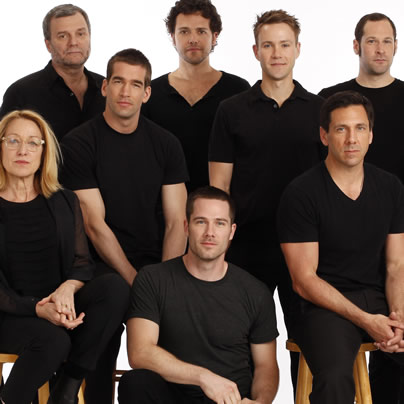
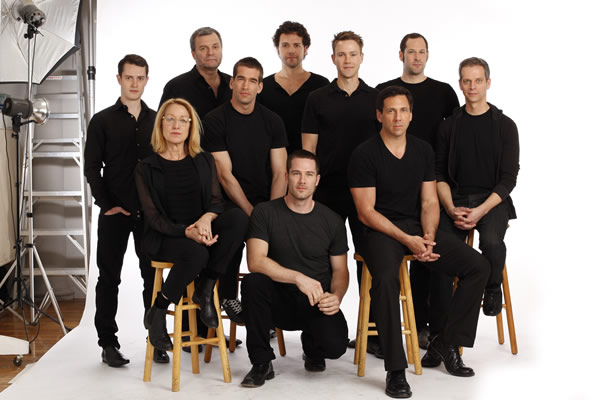
Arena Stage presents ‘The Normal Heart’ running from June 8-July 29. Photo by Carol Rosegg; courtesy Arena)
Kramer classic ‘Normal Heart’ opens D.C. run
Arena Stage at the Mead Center for American Theater’s production of the 2011 Tony-awaring winning production of Larry Kramer’s “The Normal Heart,” directed by George C. Wolfe, opens today.
The cast includes original cast members Patrick Breen and Luke MacFarlane, returning in new roles, and original production understudy Jon Levenson, as well as Patricia Wettig from ABC’s “Brothers & Sisters” and “thirtysomething,” Broadway stars Tom Berklund, Michael Berresse, Christopher J. Hanke, Nick Mennell, Chris Dinolgo and John Procaccino.
“The Normal Heart” tells the story of a group of friends struggling with the mysterious disease ravaging New York’s gay community, looking at sexual politics during the AIDS crisis.
This production is an Affiliated Independent Event of AIDS 2012, the biennial International Conference, to be held in D.C. from July 22-27. To spread awareness of the ongoing fight against AIDS, Arena will be holding related events and partnering with organizations throughout the production’s run.
Sections of the AIDS Memorial Quilt will be on display in the Mead Center along with images from the HIV/AIDS relation collections of the Archives Center at the Smithsonian’s National Museum of American History. Local clinics and HIV testing providers will have HIV testing vans parked outside the Mead Center on select weekends and panel discussions with guest speakers will follow select matinees.
Arena Stage and the Washington AIDS Partnership will host a benefit performance on July 23. The evening will include a pre-performance VIP cocktail hour, intermission champagne toast and a dance party following the performance.
Tickets range from $40-$94. Tickets for the benefit performance events start at $75.
For more information and to purchase tickets, visit arenastage.org.
Wolf Trap features bounty of summer shows
Wolf Trap’s summer season is heating up with a week full of concerts.
World-renowned contemporary instrumentalist Yanni begins the week tonight at 8 p.m. The concert will include music from his previous shows as well as songs from his newest album, “Truth of Touch.” Tickets range from $30-$55.
Gavin DeGraw and Colbie Caillat come together on Saturday at 7:30 p.m. The duo has performed several duets during previous joint tours. Tickets range from $25-$40.
Wolf Trap has its 23rd annual Louisiana Swamp Romp on Sunday at 2 p.m. The concert will feature Allen Toussaint Band, Dirty Dozen Brass Band and Big Sam’s Funky Nation. Southern dishes will also be available on the plaza. Tickets are $25.
Country superstar Martina McBride comes to Wolf Trap on Wednesday with Grammy-nominated David Nail. McBride is a four-time Country Music Awards Female Vocalist of the Year and dedicated her single, “I’m Gonna Love You Through It” to cancer survivors, performing on a pink-li Empire State Building to raise breast cancer awareness. Tickets range from $35 to $48.
Bonnie Raitt plays Thursday with special guest Mavis Staples. Tickets range from $30-$48.
For more information on the concerts and to purchase tickets, visit wolftrap.org.
‘Drag Race’ alums at Town this weekend
Town (2009 8th St., N.W.) is kicking off Pride weekend with performances from the stars of “RuPaul’s Drag Race.” Sharon Needles, Phi Phi O’Hara and Dida Ritz will all be performing during the club’s drag show starting at 10:30 p.m. They will also be sticking around to sign autographs and take pictures after the show.
The club is continuing its Pride celebration with a dance party on Saturday featuring DJ Manny Lehman, the Ladies of Town and Tha Dance Camp.
The Town drag show is hosted by Lena Lett and stars Tatiana, Shi-Queeta–Lee, Epiphany B Lee, Ba’Naka and special guests.
Doors open at 9 p.m. and admission is $20. Friday night attendees must be 18 or older and Saturday night attendees must be 21 or older.
For more information and future events, visit towndc.com.
STAY ON TOP OF ALL THINGS PRIDE! DOWNLOAD THE DIGITAL PRIDE GUIDE TODAY!
‘Pariah’ screenings at Busboys & Poets
Busboys & Poets is offering a free screening of the film, “Pariah” at each of its four locations throughout the month continuing Sunday at its 14th and V streets location (2021 14th St., N.W.) at 8 p.m.
Written and directed by Dee Rees, the film follows Alike, a 17-year-old African American woman who lives with her parents and younger sister in Brooklyn, as she embraces her identity as a lesbian and wonders how much she can confide in her family.
The film stars Adepero Oduye as Alike, Kim Wayans as her mother Audry, Charles Parnell as her father Arthur, Sahra Mellesse as her sister Sharonda, Pernell Walker as her friend Laura and Aasha Davis as Bina, a potential love interest.
The other screenings will be June 17 at the Shirlington location at 7 p.m. and June 24 at the 5th and K streets location at 8 p.m.
— JULIETTE EBNER
Bock’s minimalist play is journey of self-discovery
Iron Crow Theatre Company’s “The Typographer’s Dream,” a play by Adam Bock, runs through June 16 at the Johns Hopkins University’s Swirnow Theatre (33rd St. and Charles St., Baltimore).
The play centers on a three characters: a stenographer, geographer and typographer. As the play progresses, the characters reveals how they’re defined by their jobs and the meaning and notions of their lives are called into question.
Bock is gay and has been nominated for two Outer Critics Circle Awards.
The play runs every night at 8 p.m. Regular tickets are $17 while students and seniors are $12. For more information, go to ironcrowtheatre.com
Mount Vernon club starts Baltimore Pride celebrations
S.H.E. Productions is kicking off Baltimore Pride at Grand Central (1001 North Charles St., Baltimore) with a party event on Thursday at 9 p.m.
S.H.E. Productions is an event production company in the Baltimore area that specializes in LGBT events of various types. Its staff often performs at clubs but they also host high energy boot camps for fitness and outings/excursions.
Grand Central is surrounded by several eateries and is within walking distance of the Inner Harbor and the Walters Art Museum.
Cover is $5 at the door. For details, visit centralstationpub.com or visit sheproductionsevents.com.
Baltimore Hons commemorates ‘60s culture
HonFest, an annual festival that celebrates the historic working women of Baltimore, is this weekend on 36th Street in the Hampden neighborhood.
Started in 1994, HonFest has grown into a nationally recognized festival. Women can participate to become Baltimore’s Best Hon by sporting beehive hairdos, bright-blue eye shadow and spandex pants. Exhibitions include local musicians and artists.
The event is free but it will be $5 to park. For more information, visit honfest.net.
Twilight on the Terrace starts Pride weekend
Twilight on the Terrace benefit cocktail party will be held at Gertrude’s Restaurant at the Baltimore Museum of Art (10 Art Museum Drive) on June 15 from 7-11 p.m.
The evening will include a silent auction including artwork, gift certificates to restaurants and shops, themed gift baskets, a Myrtle Beach vacation, an autographed photo of Doris Day and dates with local celebrities. Guests will also be able to meet Baltimore actor Vincent de Paul.
There will be hors d’oeuvres, a four-hour open bar and dancing to DJ Alex Funk.
Tickets are $100. For details, visit baltimorepride.org.
— ERIN DURKIN
Theater
José Zayas brings ‘The House of Bernarda Alba’ to GALA Hispanic Theatre
Gay Spanish playwright Federico García Lorca wrote masterpiece before 1936 execution

‘The House of Bernarda Alba’
Through March 1
GALA Hispanic Theatre
3333 14th St., N.W.
$27-$52
Galatheatre.org
In Federico García Lorca’s “The House of Bernarda Alba,” now at GALA Hispanic Theatre in Columbia Heights, an impossibly oppressive domestic situation serves, in short, as an allegory for the repressive, patriarchal, and fascist atmosphere of 1930s Spain
The gay playwright completed his final and arguably best work in 1936, just months before he was executed by a right-wing firing squad. “Bernarda Alba” is set in the same year, sometime during a hot summer in rural Andalusia, the heart of “España profunda” (the deep Spain), where traditions are deeply rooted and mores seldom challenged.
At Bernarda’s house, the atmosphere, already stifling, is about to get worse.
On the day of her second husband’s funeral, Bernarda Alba (superbly played by Luz Nicolás), a sixtyish woman accustomed to calling the shots, gathers her five unmarried daughters (ages ranging from 20 to 39) and matter-of-factly explain what’s to happen next.
She says, “Through the eight years of mourning not a breeze shall enter this house. Consider the doors and windows as sealed with bricks. That’s how it was in my father’s house and my grandfather’s. Meanwhile, you can embroider your trousseaux.”
It’s not an altogether sunny plan. While Angustias (María del Mar Rodríguez), Bernarda’s daughter from her first marriage and heiress to a fortune, is betrothed to a much younger catch, Pepe el Romano, who never appears on stage, the remaining four stand little chance of finding suitable matches. Not only are they dowry-less, but no men, eligible or otherwise, are admitted into their mother’s house.
Lorca is a literary hero known for his mastery of both lyrical poetry and visceral drama; still, “Bernarda Alba’s” plotline might suit a telenovela. Despotic mother heads a house of adult daughters. Said daughters are churning with passions and jealousies. When sneaky Martirio (Giselle Gonzáles) steals the photo of Angustias’s fiancé all heck kicks off. Lots of infighting and high drama ensue. There’s even a batty grandmother (Alicia Kaplan) in the wings for bleak comic relief.
At GALA, the modern classic is lovingly staged by José Zayas. The New York-based out director has assembled a committed cast and creative team who’ve manifested an extraordinarily timely 90-minute production performed in Spanish with English subtitles easily ready seen on multiple screens.
In Lorca’s stage directions, he describes the set as an inner room in Bernarda’s house; it’s bright white with thick walls. At GALA, scenic designer Grisele Gonzáles continues the one-color theme with bright red walls and floor and closed doors. There are no props.
In the airless room, women sit on straight back chairs sewing. They think of men, still. Two are fixated on their oldest siter’s hunky betrothed. Only Magdelena (Anna Malavé), the one sister who truly mourns their dead father, has given up on marriage entirely.
The severity of the place is alleviated by men’s distant voices, Koki Lortkipanidze’s original music, movement (stir crazy sisters scratching walls), and even a precisely executed beatdown choreographed by Lorraine Ressegger-Slone.
In a short yet telling scene, Bernarda’s youngest daughter Adela (María Coral) proves she will serve as the rebellion to Bernarda’s dictatorship. Reluctant to mourn, Adela admires her reflection. She has traded her black togs for a seafoam green party dress. It’s a dreamily lit moment (compliments of lighting designer Hailey Laroe.)
But there’s no mistaking who’s in charge. Dressed in unflattering widow weeds, her face locked in a disapproving sneer, Bernarda rules with an iron fist; and despite ramrod posture, she uses a cane (though mostly as a weapon during one of her frequent rages.)
Bernarda’s countenance softens only when sharing a bit of gossip with Poncia, her longtime servant convincingly played by Evelyn Rosario Vega.
Nicolás has appeared in “Bernarda Alba” before, first as daughter Martirio in Madrid, and recently as the mother in an English language production at Carnegie Melon University in Pittsburgh. And now in D.C. where her Bernarda is dictatorial, prone to violence, and scarily pro-patriarchy.
Words and phrases echo throughout Lorca’s play, all likely to signal a tightening oppression: “mourning,” “my house,” “honor,” and finally “silence.”
As a queer artist sympathetic to left wing causes, Lorca knew of what he wrote. He understood the provinces, the dangers of tyranny, and the dimming of democracy. Early in Spain’s Civil War, Lorca was dragged to the the woods and murdered by Franco’s thugs. Presumably buried in a mass grave, his remains have never been found.
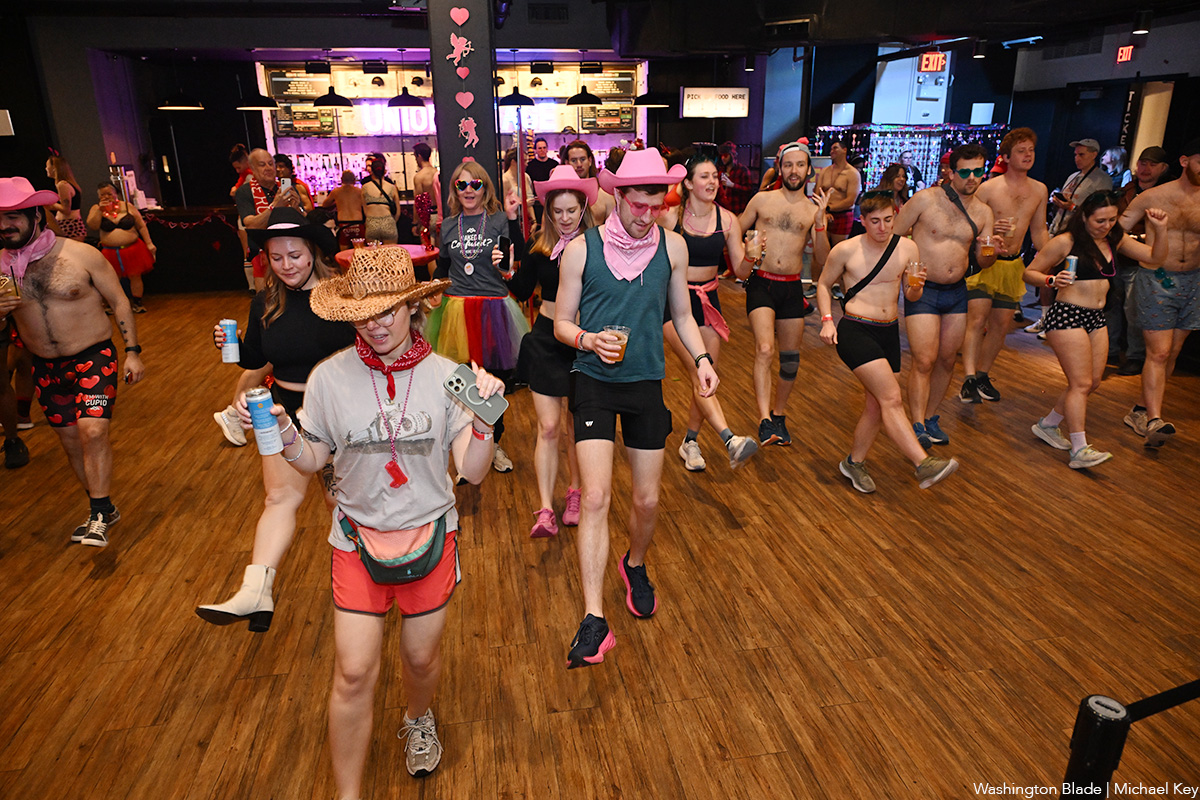
Cupid’s Undie Run, an annual fundraiser for neurofibromatosis (NF) research, was held at Union Stage and at The Wharf DC on Saturday, Feb. 21.
(Washington Blade photos by Michael Key)
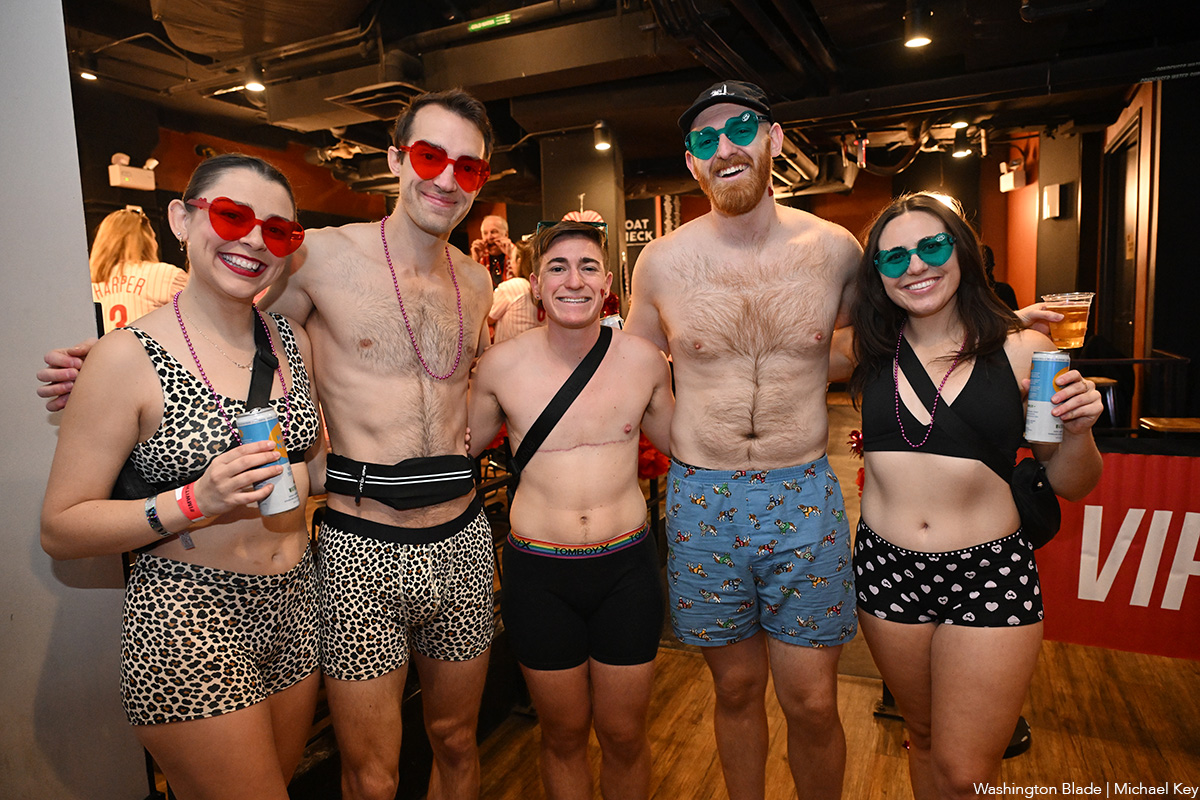
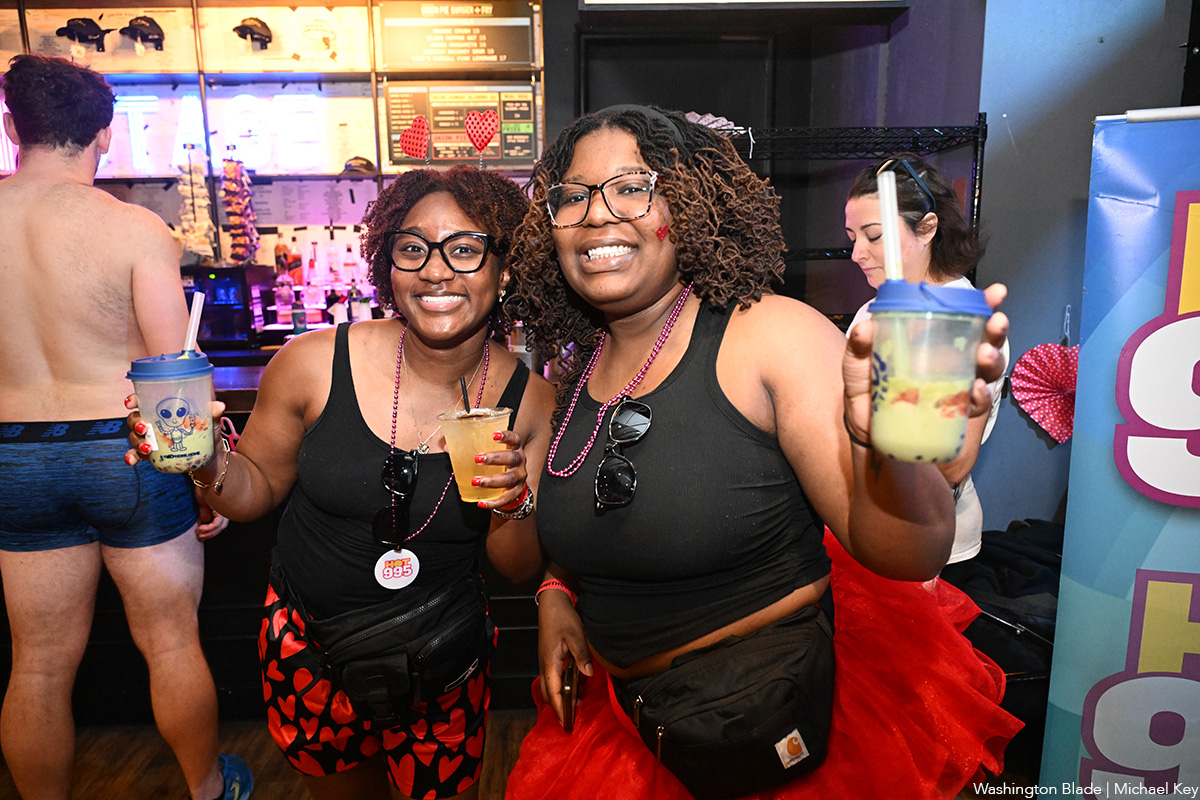
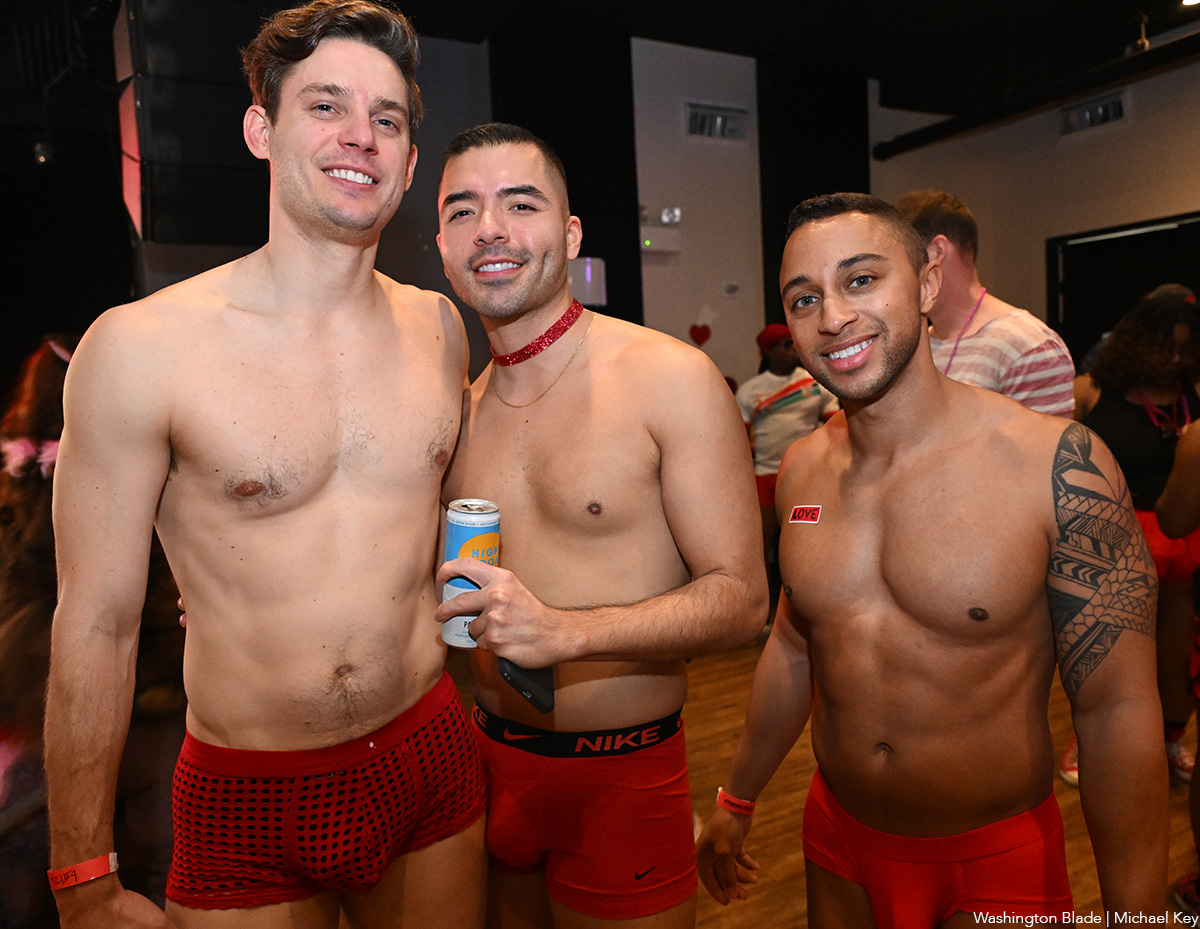
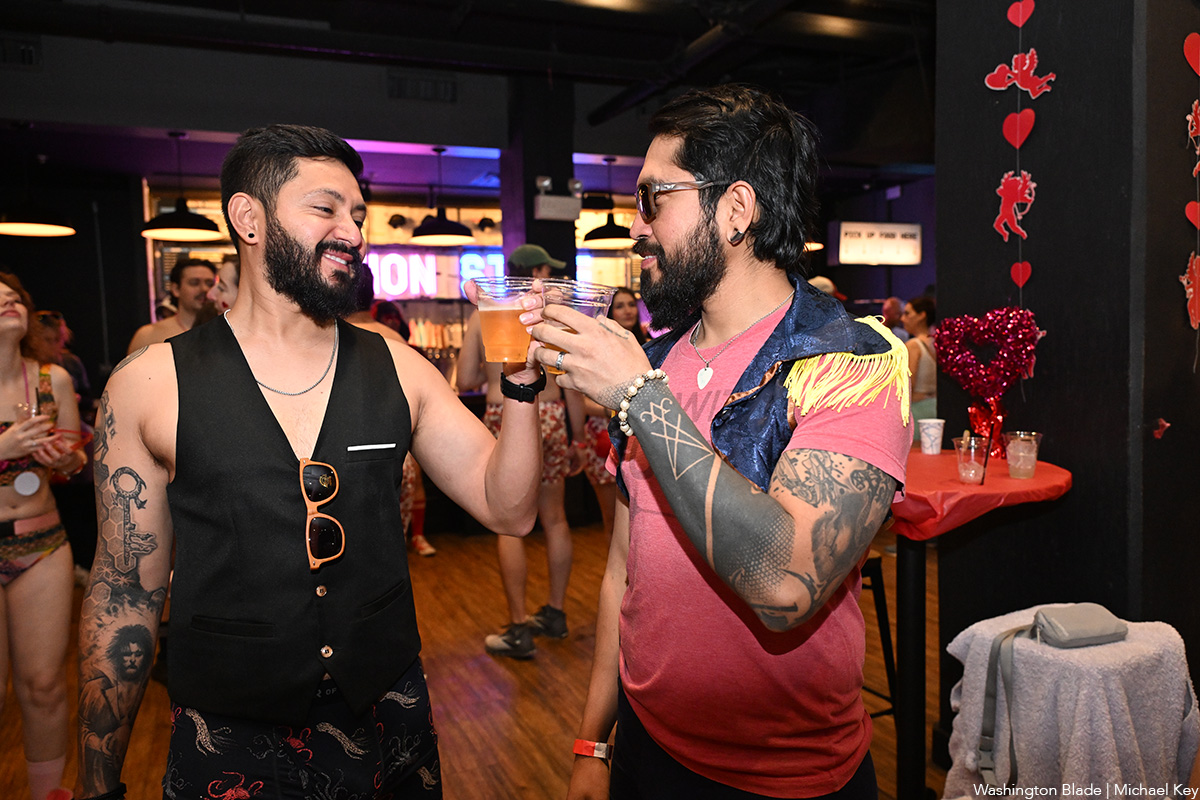
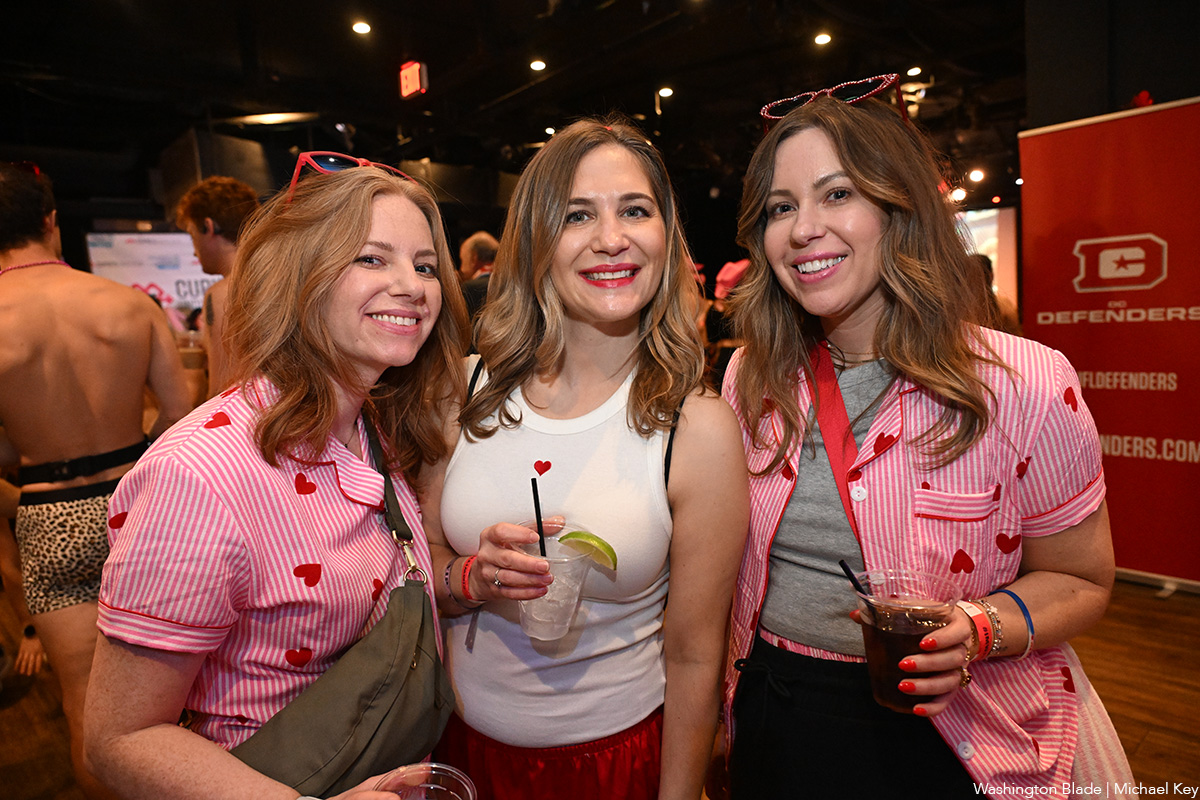
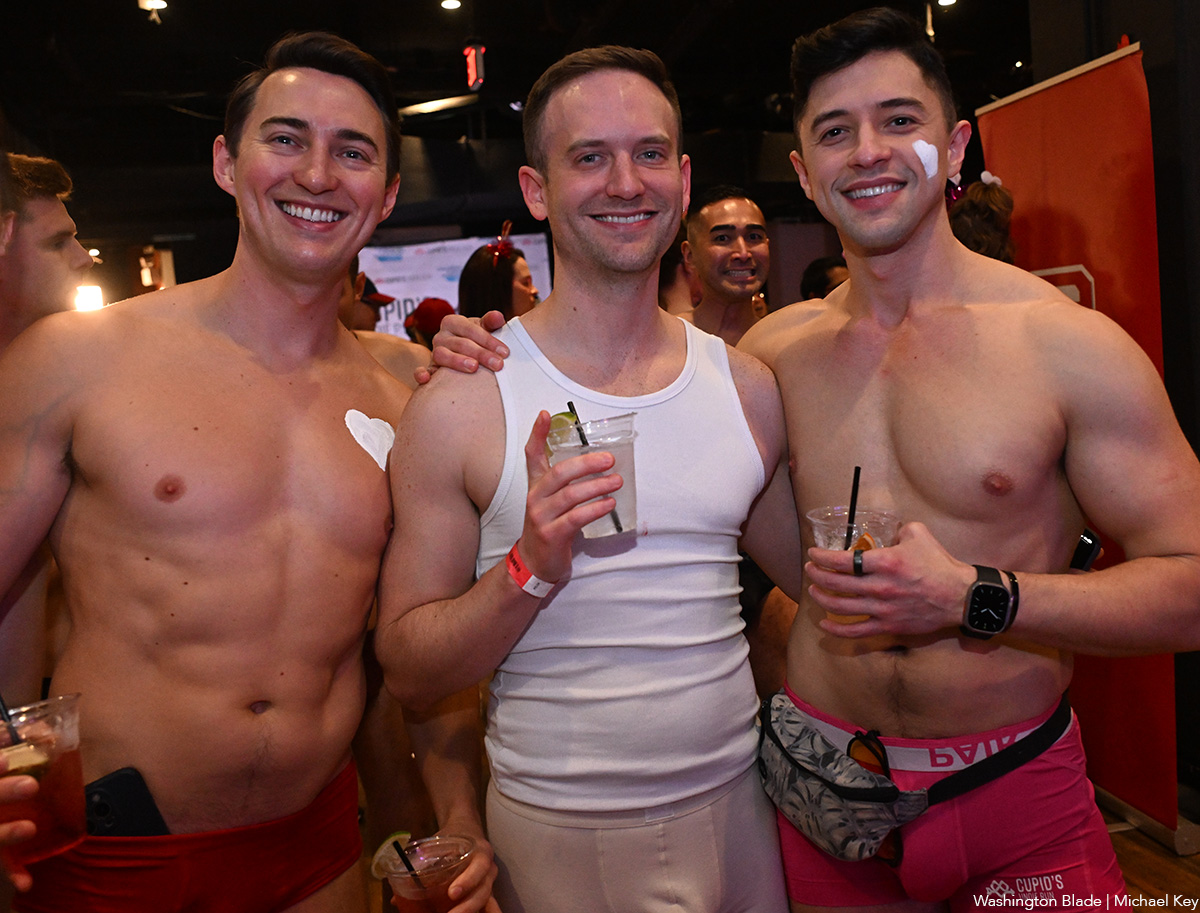
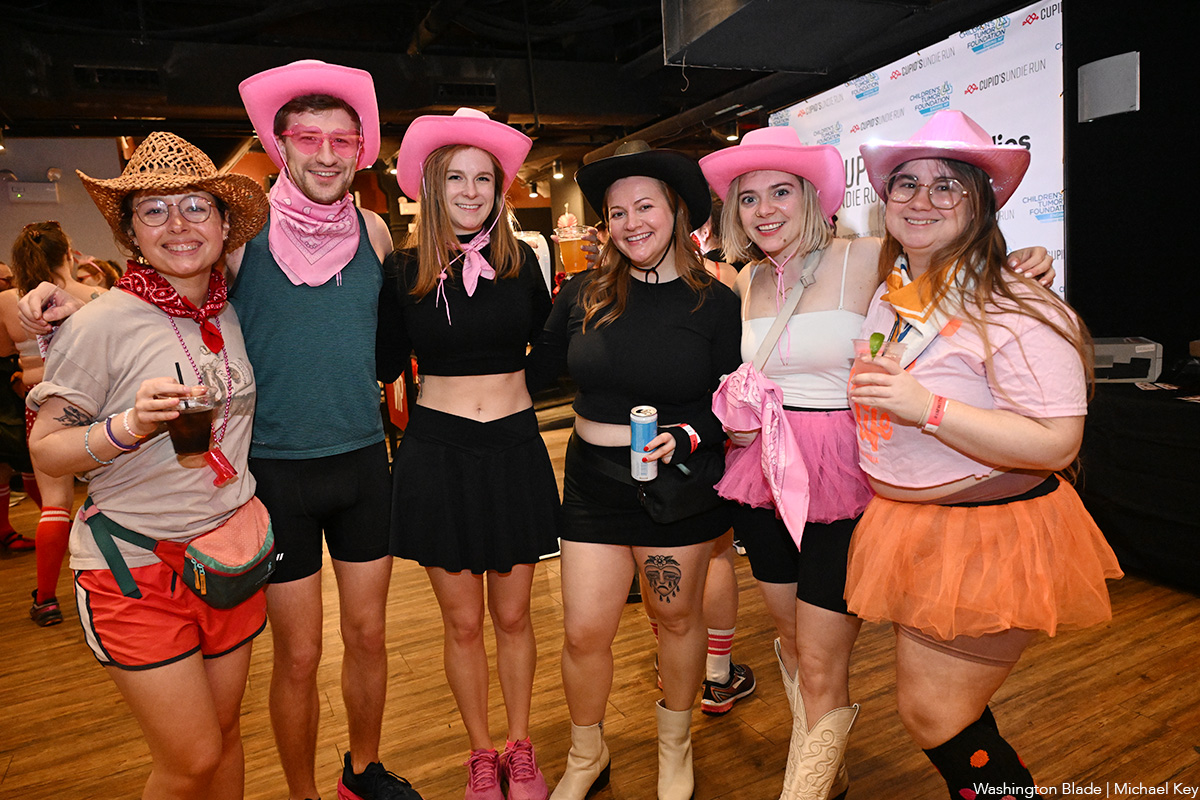
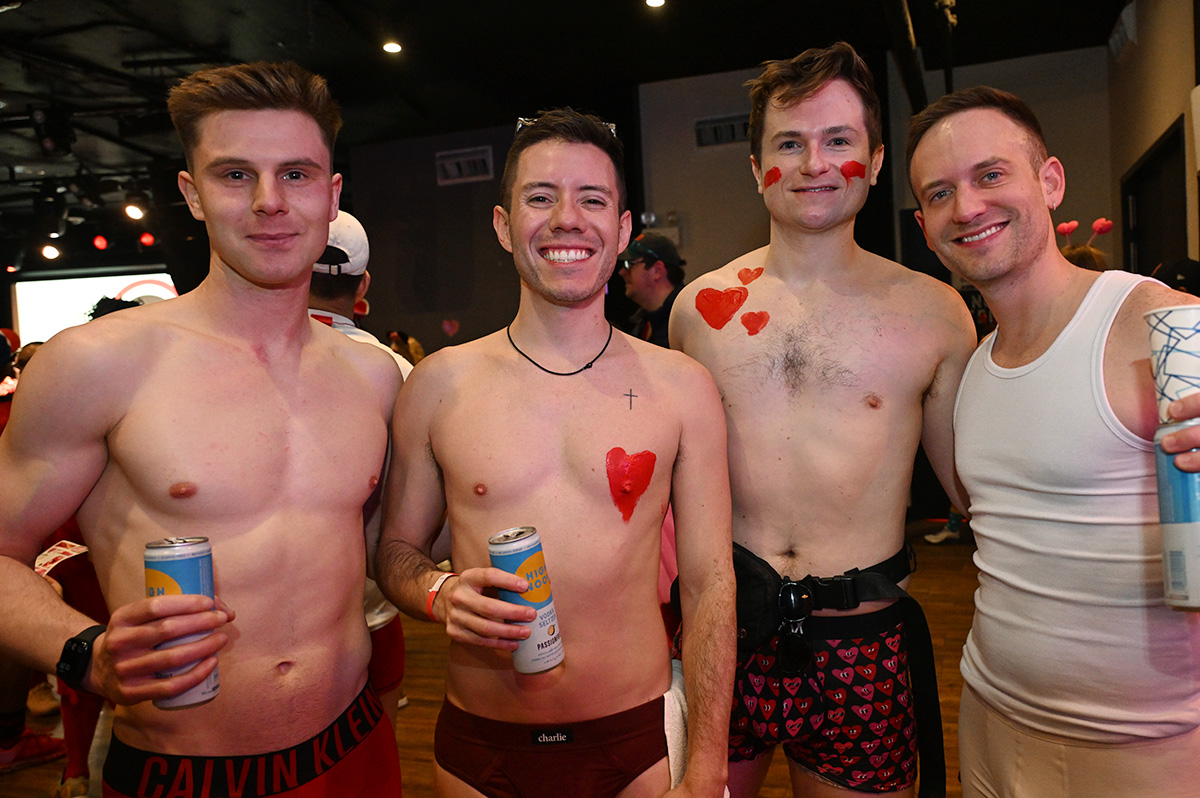
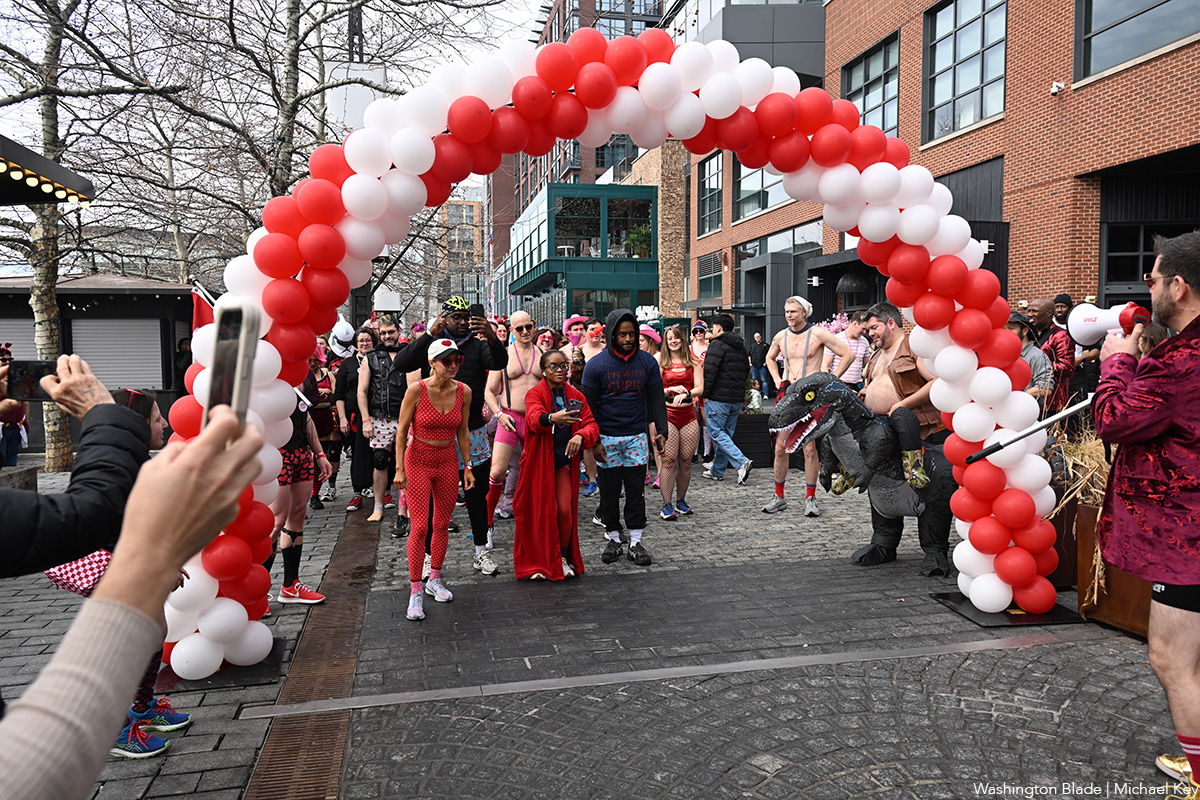
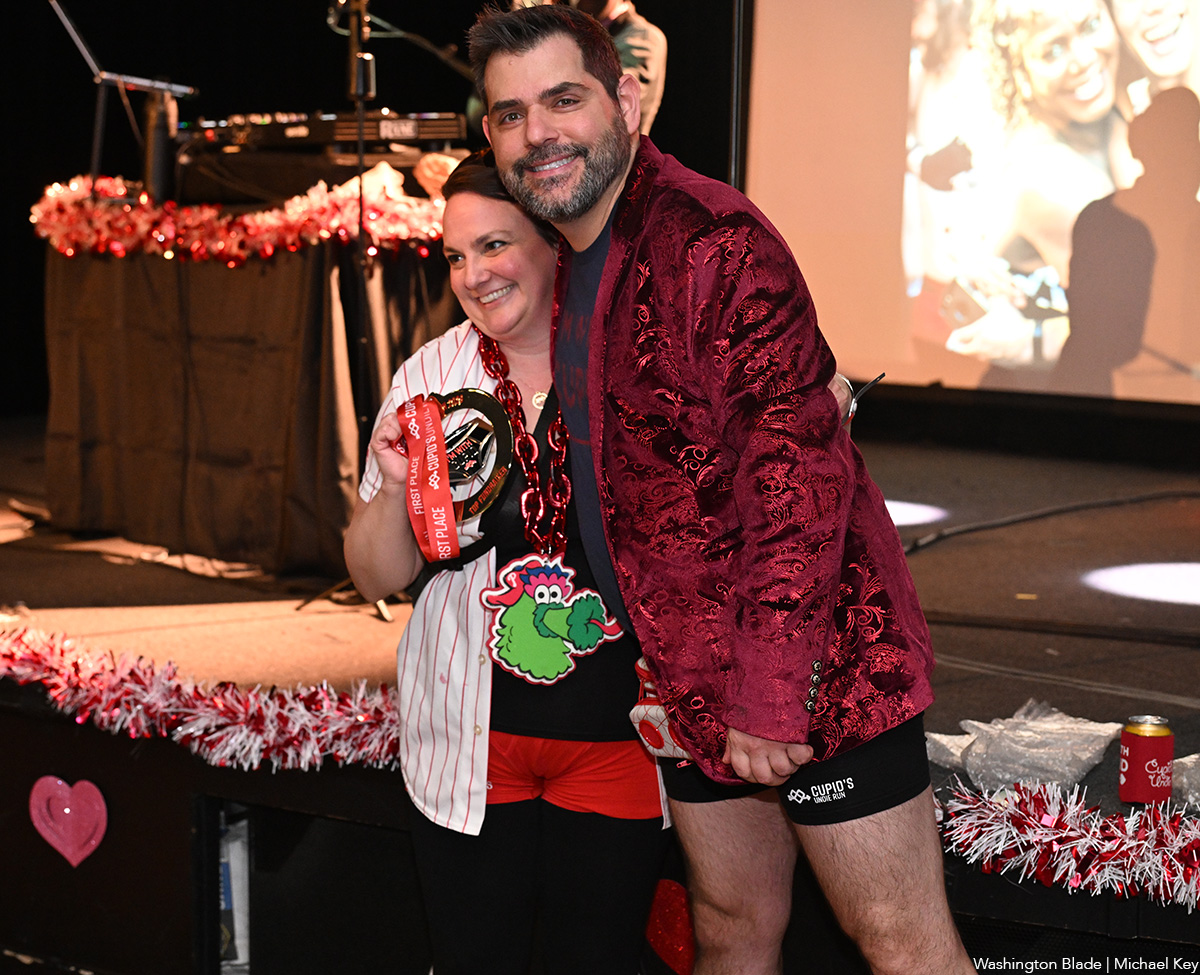
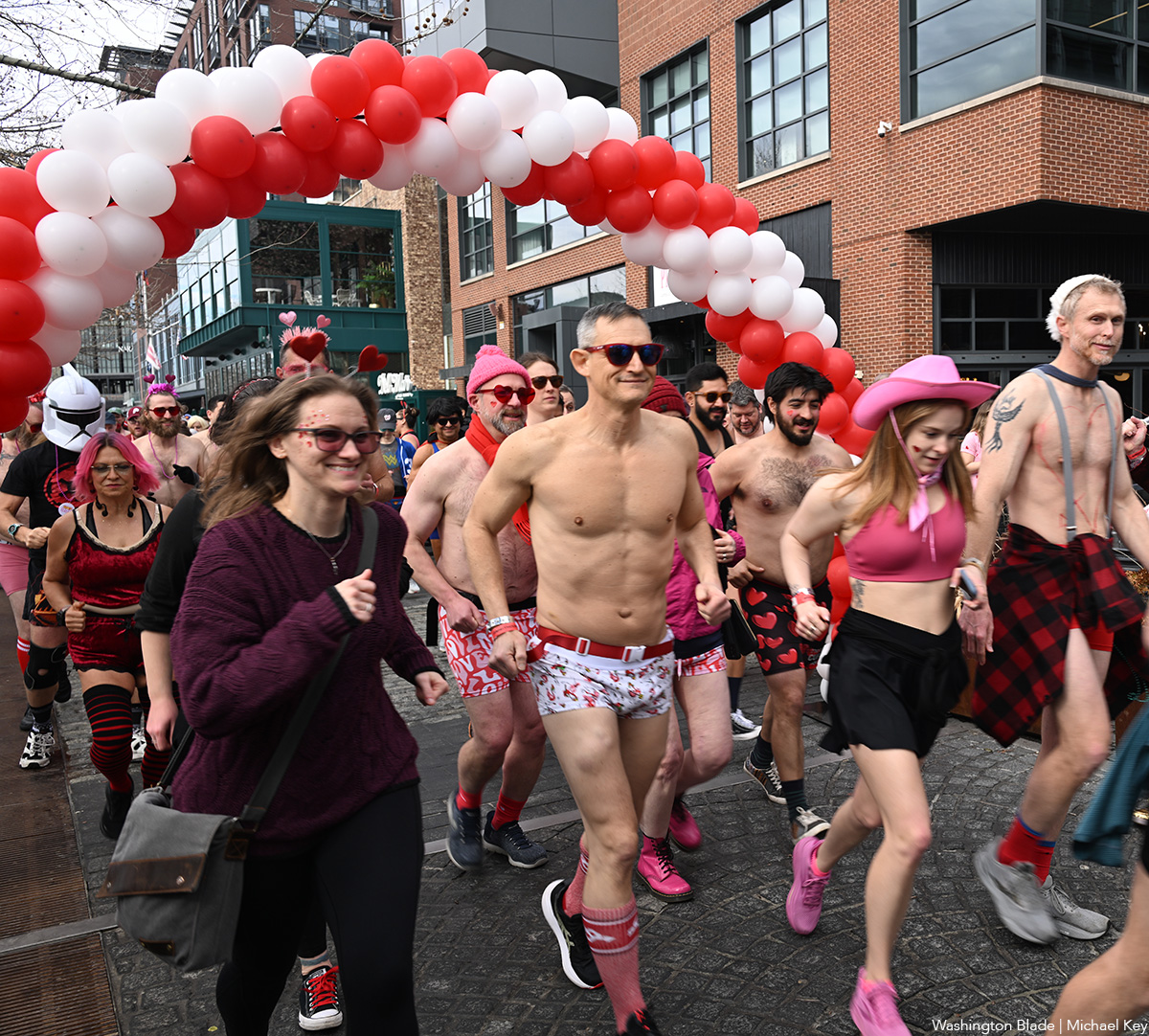
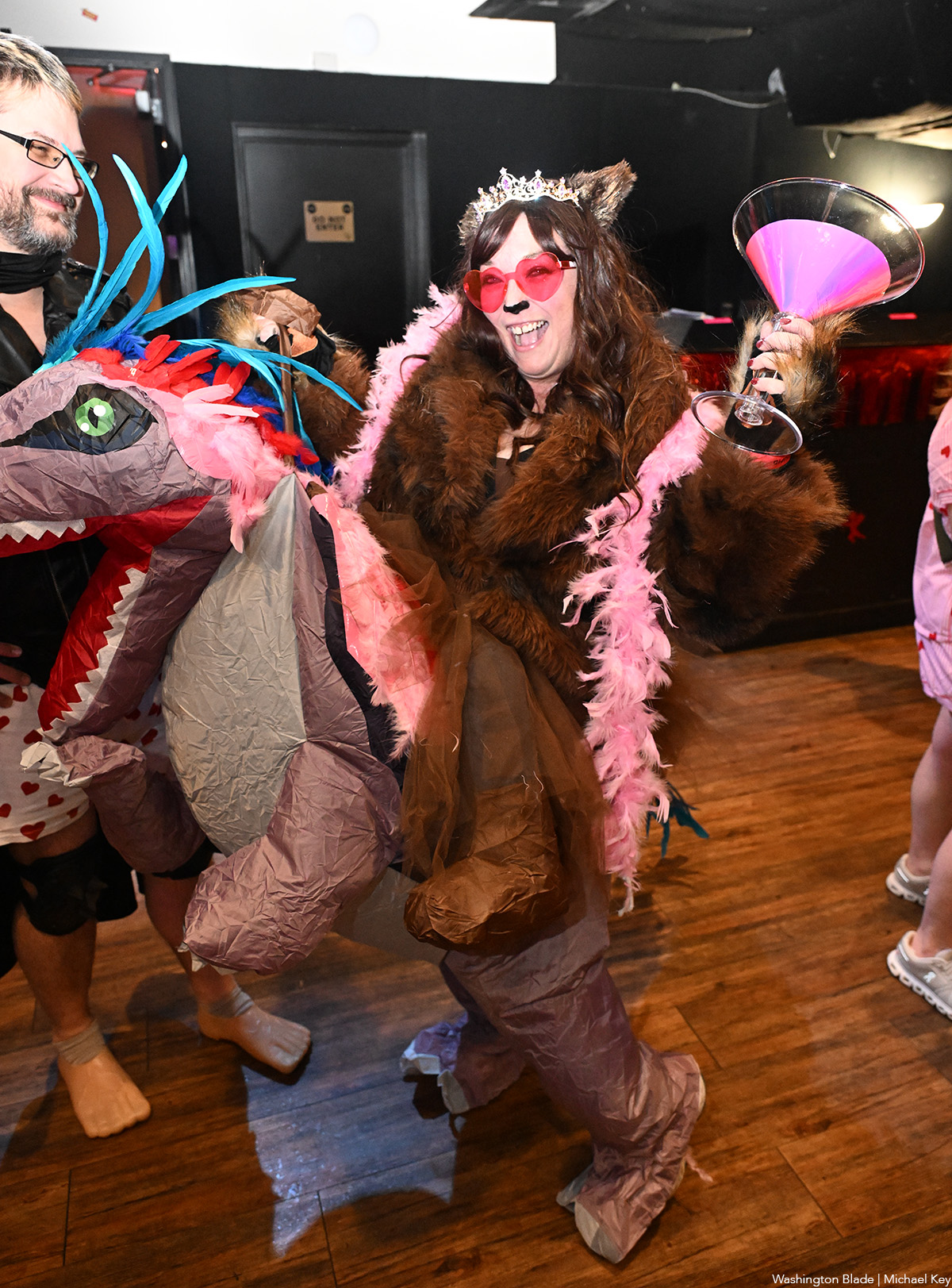
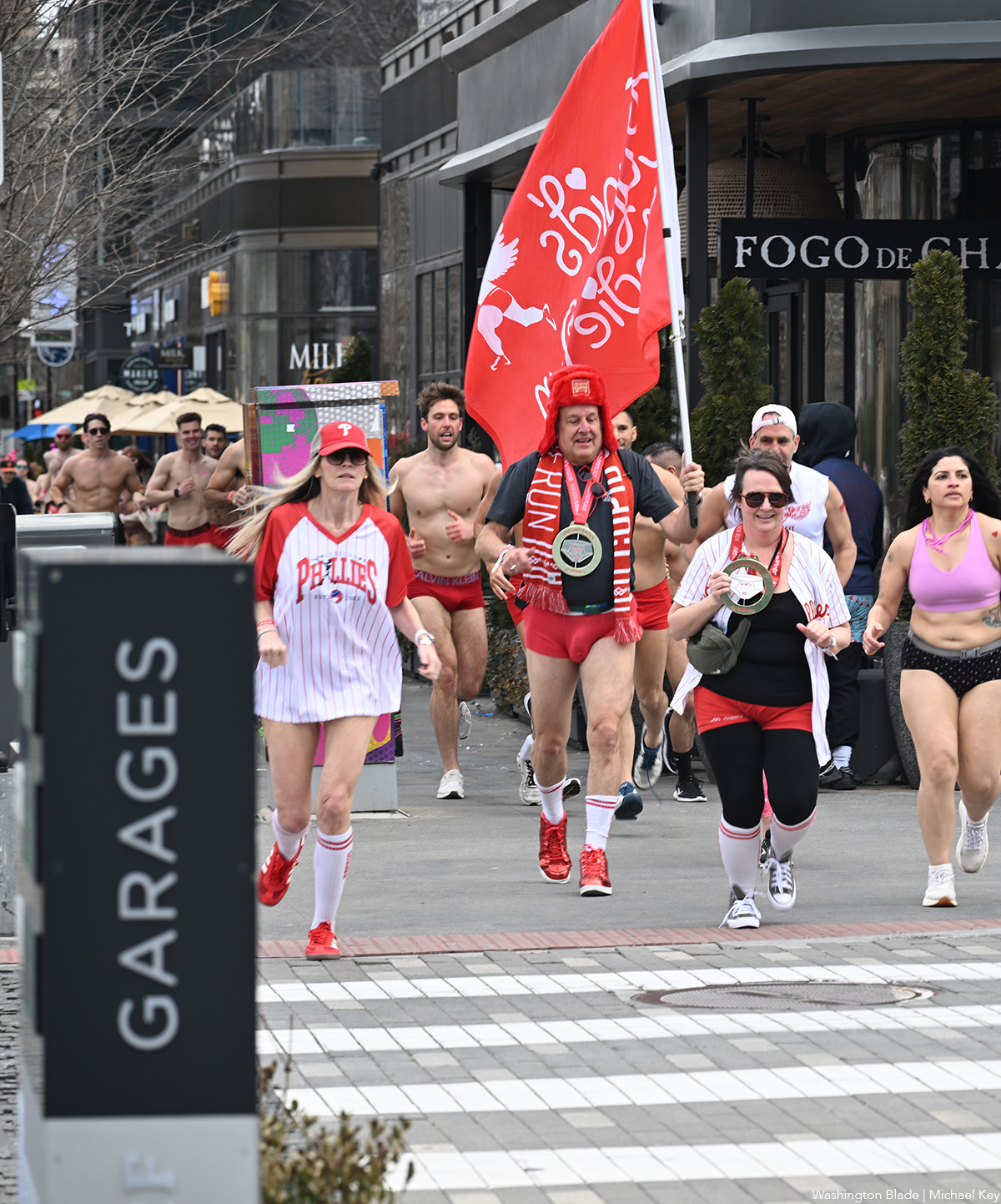

Sweat DC is officially expanding to Shaw, opening a new location at 1818 7th St., N.W., on Saturday, March 28 — and they’re kicking things off with a high-energy, community-first launch event.
To celebrate, Sweat DC is hosting Sweat Fest, a free community workout and social on Saturday, March 14, at 10 a.m. at the historic Howard Theatre. The event features a group fitness class, live DJ, local food and wellness partners, and a mission-driven partnership with the Open Goal Project, which works to expand access to youth soccer for players from marginalized communities.
For more details, visit Sweat DC’s website and reserve a spot on Eventbrite.
-

 National5 days ago
National5 days agoLGBTQ activists mourn the Rev. Jesse Jackson
-

 Massachusetts4 days ago
Massachusetts4 days agoEXCLUSIVE: Markey says transgender rights fight is ‘next frontier’
-

 New York4 days ago
New York4 days agoLawsuit to restore Stonewall Pride flag filed
-

 Opinions4 days ago
Opinions4 days agoGay Treasury Secretary’s silence on LGBTQ issues shows he is scum




















